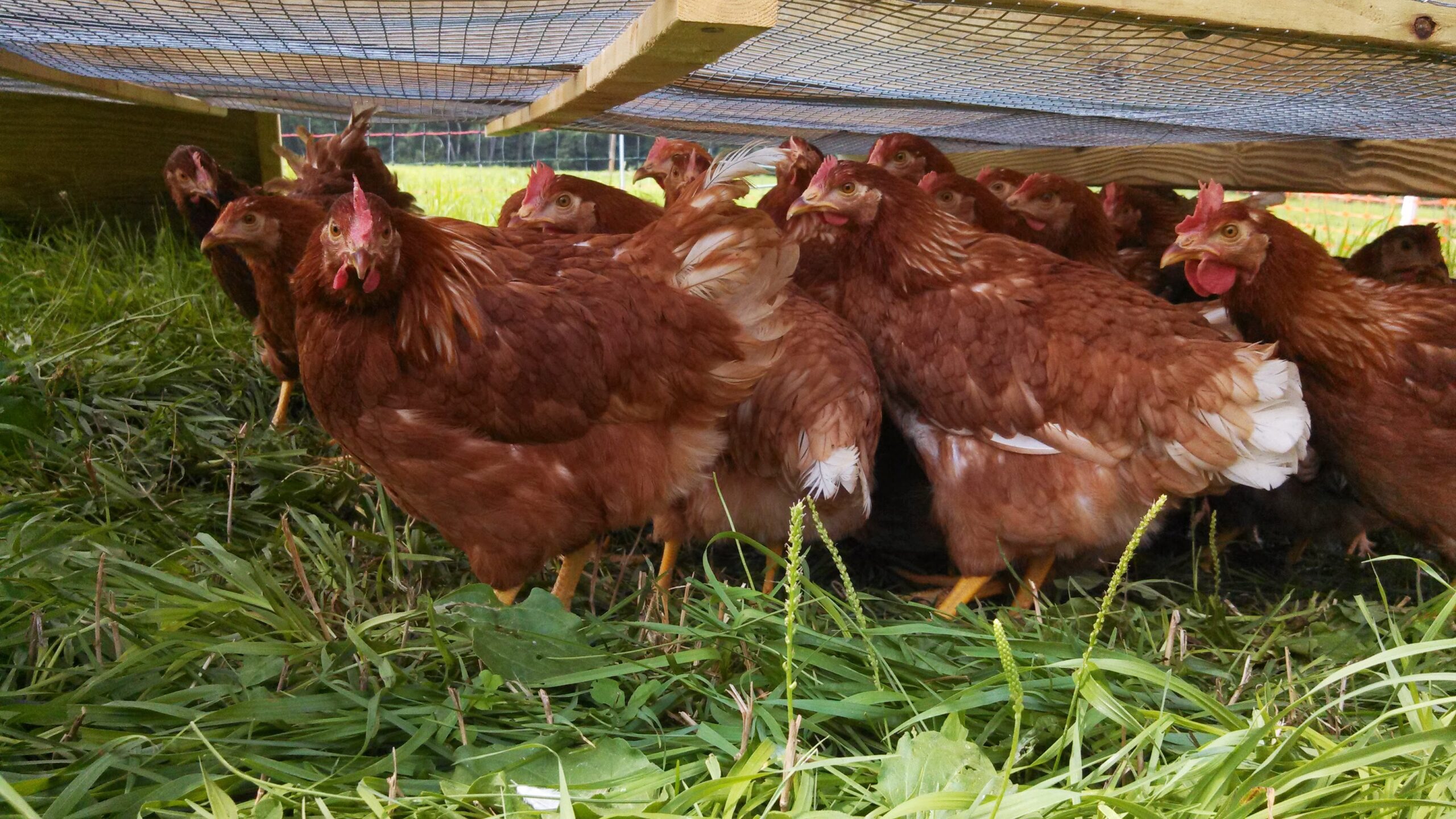
Highly Pathogenic Avian Influenza
Current updates
October 2024 update
Please refer to the Colorado Dept. of Ag website for reporting sick or dead birds.
It is critical that sick or unusual bird deaths be reported.
USDA APHIS has published a FAQ on the situation with HPAI in dairy cattle as of March 29, 2024
As of September 6, 2024 There are 17 counties in Colorado that have reported HPAI in commercial or backyard flocks. These counties include Pitkin, Montrose, La Plata, Weld, Jefferson, Mesa, Boulder, Larimer, Prowers, Moffat, Arapahoe, Yuma, Pueblo, Routt, Morgan, Bent and Delta. The majority of the birds affected belong to commercial facilities (over 8 million birds), followed by 15,801 gamebirds and 1,685 backyard birds.
HPAI in dairy cattle
No cases have been ifrntified in Colorado as of April 5, 2024. Cases have been reported in dairy farms in Kansas and Texas.
Guidelines for hunters
Waterfoul hunters should take measures to minimize the risk of spreading the virus to domestic birds. Human infections, although rare, are also possible. Human infections have occured and are most likely to happen to people in direct contact with infected birds or contaminated environments.
U.S. Fish and Wildlife Service General Safety Guidelines for Hunters Handling Wildlife and their tissues.
- Do not handle or eat sick game.
- Field dress and prepare game outdoors or in a well-ventilated area.
- Wear rubber or disposable latex gloves while handling and cleaning game.
- When done handling game, wash hands thoroughly with soap or disinfectant, and clean knives, equipment, and surfaces that came in contact with game.
- Do not eat, drink, or smoke while handling animals.
- All game should be thoroughly cooked to an internal temperature of 165 degrees F before being consumed.
What is Highly Pathogenic Avian Influenza (HPAI)?
Avian influenza (AI) is a viral disease that can infect most domestic poultry (chickens, turkey, geese, ducks, pheasants, and guinea fowl) and wild waterfowl. AI occurs naturally in waterfowl and shorebirds without causing noticeable illness. Different strains of AI can be classified by their pathogenicity as either low pathogenicity or high pathogenicity. HPAI strains are extremely dangerous to domestic commercial and backyard flocks, causing sudden death, and rapidly spreading from flock to flock. HPAI is very infectious and lethal. There is no treatment or vaccination for HPAI.
Where has HPAI Been Found?
HPAI has been confirmed in a flocks in 47 states. For updated information about HPAI affected areas visit the APHIS website.
Symptoms of HPAI
Birds infected with HPAI may show one or more of the following signs:
- Sudden death without clinical signs
- Lack of energy or appetite
- Decreased egg production or soft-shelled or misshapen eggs
- Swelling of head, comb, eyelids, wattles, and hocks
- Purple discoloration of wattles, combs, and legs
- Nasal discharge, coughing, and sneezing
- Incoordination
- Diarrhea
From USDA-APHIS Defend the Flock
What to do to Prevent HPAI in your Backyard Flock
Now is the perfect time to review your biosecurity plan. Basics steps to keep your birds safe include:
- Keep domestic poultry and fowl away from interacting with wild waterfowl; keep birds under cover and away from areas where migratory, wild waterfowl congregate
- Keep visitors to a minimum
- Wash your hands before and after coming in contact with live poultry
- Change clothes before entering poultry area and before leaving the property
- Clean and disinfect tools
- Don’t kiss your chickens
- Know the signs of illness
- Report sick birds
Where to Report Sick or Dying Birds in Colorado
If you have sick or dying birds in your flock, immediately report to one of the resources below.
CDA State Veterinarian’s Office – (303)869-9130
CSU Avian Health Team – (970)297-4008
USDA Healthy Birds Hotline – (866)536-7593
Other Resources
Colorado Department of Ag – Reportable Diseases
CO Dept. of Ag Reportable Diseases webpage, includes of a list of all reportable diseases in the state of Colorado and how to report.
CSU – Avian Diagnostics
The Avian Diagnostics Lab at the CSU College of Veterinary Medicine and Biomedical Sciences that provides disease diagnostic services and education.
USDA-APHIS Defend the Flock Program
There are more poultry diseases than HPAI that can harm your flock. Learn the signs of common poultry illnesses and how you can defend your flock against them.
USDA-APHIS HPAI Webpage
The APHIS page containing formation about AI prevention, control, current HPAI findings, past findings, and response procedures.
Small and Backyard Poultry Extension
National Extension website with resources on all aspects of backyard poultry matters.




